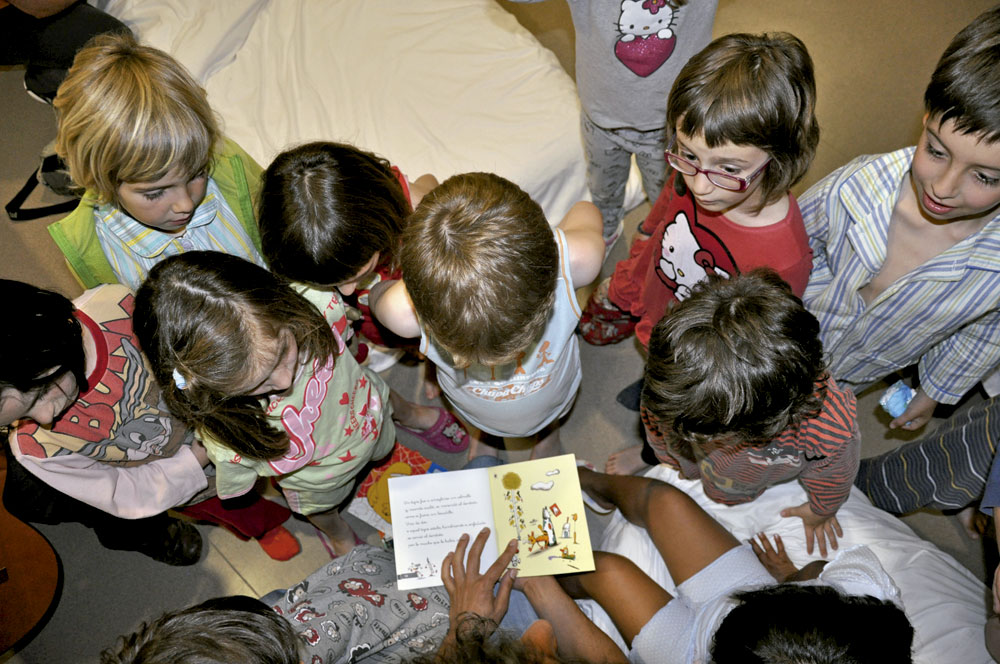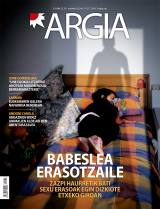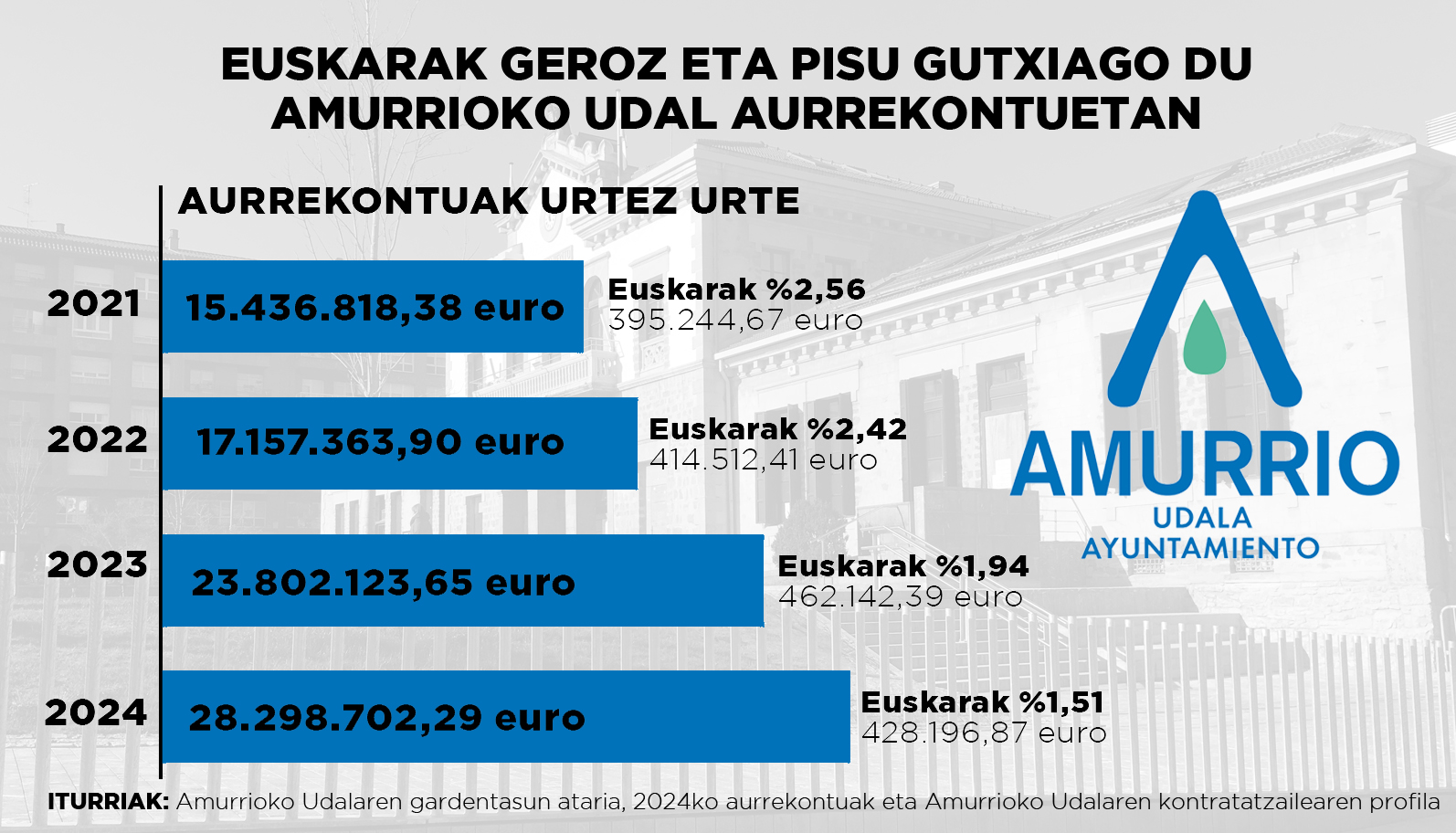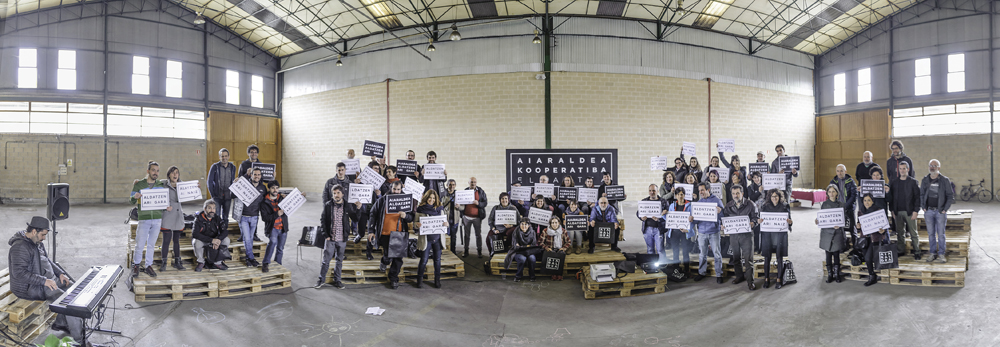Will you lose the treasure of home in school?
- At the request of the City Council of Vitoria-Gasteiz, the company Kultur Kabia prepared a report on the conclusions of the qualitative study on the transmission of Euskera with the parents of Vitoria-Gasteiz. The objective was to collect first-hand information and to raise awareness among Euskaldunes, Castellanoparlantes, Mixtas and immigrants of the importance of transmission.

Three discussion groups were formed, consisting of five or seven members. In one of the groups, the two parents were Euskaldunes; in the second, one of the parents was Euskaldun and in the third, none of the parents knew the Basque. In the in-depth interviews, the researchers interviewed two immigrant parents, in Spanish in both cases, one of them Maghreb, and the other in Latin America.
Choice of parents
As for the Basque parents, the study undoubtedly shows that this group gives importance to transmission, they are aware of the importance of the theme. For example, they consider it important that Euskera be the mother tongue of their sons and daughters and that they should be educated in model D. According to the parents, “the socio-linguistic situation of Vitoria-Gasteiz makes worse the Basque capacity of their sons and daughters, and the habit of using it”. What is more, the report states: “They experience negatively the schooling of boys and girls: the encounter with boys and girls who do not have the Basque language as their mother tongue has brought them a greater tendency towards Spanish and, consequently, towards Euskera”. The parents, of course, are convinced that they will learn Spanish without any difficulty, by the force of the Castilian speaking environment, and that they will have no inconvenience, even if they are going to study at an external university, although in their life until then they have only learned in Basque.
In groups composed of Castilian and Spanish parents, all of them have a positive attitude towards the Basque country. Moreover, everyone has ever done some kind of session to learn Basque, and they think they have to make the effort to use the little they know to the extent possible. These erdaldun mothers and fathers who are not able to speak in Euskera, are motivated by affectivity, as stated in the report, “have mentioned reasons of identity and, although it is in a second sense of affectivity, have also shown their desire to give their children what they do not have. They see it as an essential element of culture.”
Regarding schooling, even giving importance to the Euskaldun model, they also have a factor in choosing the distance between home and school. The children will learn Euskera well, perhaps not on the same level as Castilian, but “to the extent that the use of Euskera is considered a factor of will”.
In mixed couples, the Basques speak in Basque to their sons and daughters. However, Spanish is the main language of the house: in addition to among the members of the couple, also in the case of the rest of the family, although there are two trends: “On the one hand, those who play consciously and coherently support the Basque Country, even if they are in the presence of their fellow Castilian parishioners; on the other hand, those who prioritize the acquisition of discourse to the rest of the members”. The fact that the members of Euskaldunes speak in Basque to their sons and daughters, in a reality of Castilian and Spanish families with a totally foreign Basque, makes the Basque country have an entrance.
The fathers and mothers of this group attach great importance to the mother tongue in order to balance the competition between languages, since those who have Euskera as their mother tongue will more easily maintain the balance between the two. Most of the members of these mixed couples have as their mother tongue Spanish, and they claim to experience feelings such as “illusion”, “joy”, “pride” or “pride” when listening to their children in Basque.
Finally, in the two conversations held with immigrant parents it has been found that they have not had contact with the Basque Country for a long time. One considers Euskera necessary; without instrumental motivation, one prioritizes cultural. He has also experienced discrimination, and in this sense, considers it essential to know Euskera in order to integrate into the community. This also feels proud when she listens to her children in Basque. “The second immigrant had his first contact with the Basque Country through the school’s Andereño. The first concern is with the academic results and gives much importance to the Basque”. The instrumental motivation is that of the second immigrant. It also considers it important that extracurricular activities be carried out in Basque.
Some main conclusions
As for Euskaldunes parents, “it is especially important that parents have an active linguistic model, that allows leisure in Euskera or that as children age at home continue to use Euskera”. To address the disappointment of these fathers and mothers in the face of the superiority of the Castilian speaking situation in Vitoria-Gasteiz, the rapporteurs send them the following message: “Changing the small circumstances will change the great situation.” Given that parents are in charge of continuing the path undertaken in the first years of children’s lives, “they should try to make it possible for them to have the most Euskaldun environment possible, with time and space. As for the Euskera received from home, the parents experience schooling as a setback, while the authors of the report ask whether they are activated by this interpretation or led to resignation, and stress the need to reflect on it.
As for Castilian and Castilian parents, their desire for the Basque country should be “recognized, acknowledged and thanked”, because they would like to know Euskera and because they have made a direct or indirect effort. But that doesn't mean conforming. “Erdaldunes parents have done a lot, but they can still do a lot.” Likewise, parents should banished from their heads the idea that the school will only euskaldunify the child, and maintain in time the motivation – “fascination” – towards the Basque country that the parents experience when the child is small. “Before becoming fathers and mothers, we should intensify the work of motivation and awareness and reach areas where the Basque capacity of fathers and mothers does not reach, through spaces outside the family”, that is, based on the positive attitude and cultural motivation of these fathers and mothers with respect to the Basque country.
In the case of mixed couples, the reality of the partner erdalduna is somehow euskalduniza. It can be a buffer to make practical progress in transmission. Even when there are Castilian or Spanish family members, it is important to use the Basque language, as this generates positive feelings in the Castilian partner: “Acting in this way may mean that the Basque father is an appropriate linguistic reference for his sons and daughters.” In this way, we would reproduce the scheme “with what I can speak in Basque, whenever possible”.
As for immigrant parents, since integration into the community is one of the most important concerns, it should be emphasized that in order to achieve complete integration, the knowledge of the Basque Country is not only useful, but necessary. Once they have left their country and moved to another country, most have had to learn a different language and, once they have learned, live the situation in a positive way, as linguistic diversity enriches them. “They did it out of necessity, but for their children it can be much more natural.”
The most resounding truth is what one of the immigrant parents said: “If I had the opportunity, I would also like to know twenty languages: Basque, Arabic, French, Spanish… all the languages that are and are not. It’s very good for everyone.”
Guraso euskaldunak dio: “Ikastolan ikasi nuen euskaraz, gurasoak erdaldunak baititut. Bitxia da, ikastolan euskaraz ikasten nuen, baina gaztelaniaz hitz egiten nuen, natural-natural. Institutu garaia eta gero, ikasketak gaztelaniaz egiten hasi nintzenean, egoera irauli eta lagunartean euskaraz hitz egiten hasi ginen. Horrelako asko ikusi dut Gasteizen. Ikastolan euskaraz ikasiak, baina gero euskaldundutako jendea”.
Erdalduna: “Ni Madrilgoa naiz, 26 urte nituela etorri nintzen Gasteiza lanera, baina 33 urterekin hasi zen nire euskararen mundua, lehenengo umea izan genuenean. Ordu arte ez nuen euskaraz inoiz aditu, umea izan genuenean konturatu nintzen euskara ere hor zegoela, hizkuntza bat, bizirik. Alabak euskarazko haurtzaindegira eraman genituen eta, harrezkero, ikastola da nire euskarazko munduaren ardatza”.
Bikote misto bateko gurasoa: “Herri euskaldunetik nator, eta Gasteiza etorri nintzenean, banuen kezka, umeek gaztelaniaz hitz egingo ote zidaten. Neure burua akabatzea izango zatekeen. Horixe izan zen Gasteiza etorri eta ibili nuen kezkarik handiena”.
“Izaskun Arrueren urratsen atzetik” liburua idatzi du Miel Anjel Elustondok. Azken hamarkadetan Gasteizen eta Araban euskararen bilakaera eta Ikastolen sorrera nolakoa izan zen aztertu du. Izaskun Arrue Arabako Ikastoletako “lehen andereñoa” izan... [+]





















